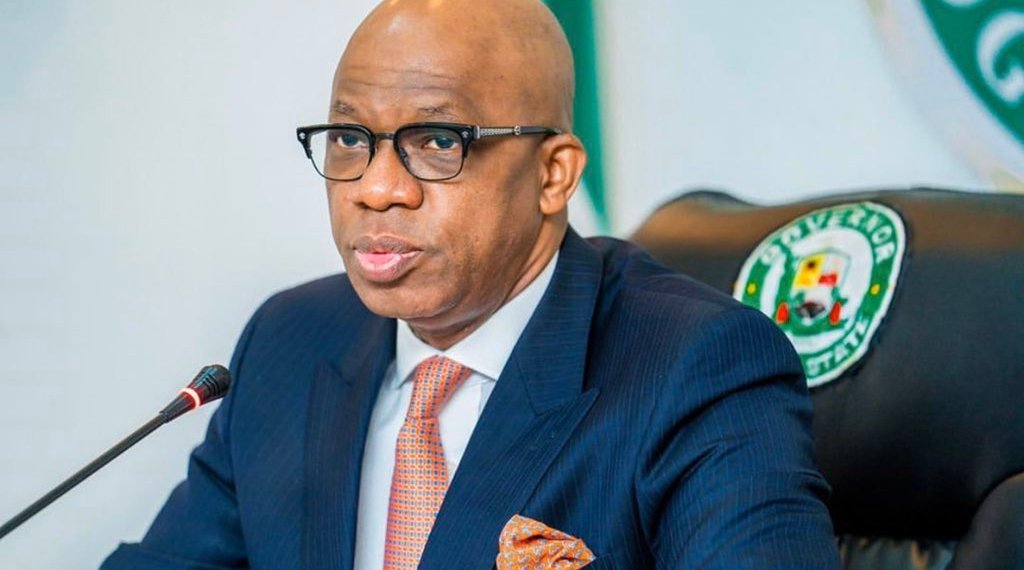Vice President Yemi Osinbajo and his Tanzanian counterpart, Philip Mpango, on Sunday, in Arusha, Tanzania, held bilateral talks.
The two spoke on issues ranging from climate change and technology to deterring unconstitutional changes of government in Africa.
Osinbajo is in Tanzania to speak at inaugural session of the African Court of Human and Peoples’ Rights for the year 2022 scheduled for Feb. 28.
They also discussed issues of interest to both Nigeria and Tanzania, including infrastructure development, trade and investment, technology, climate change and democracy.
According to Osinbajo, ECOWAS has experienced in just under a year, four coups d’etat including attempts.
He said that it was disturbing because such things ought to have been put behind the region.
“It is something that we think has to do with more cooperation. AU has been very forthcoming (in condemnation) in saying that we cannot tolerate unconstitutional seizures of power.
“But sanctioning these coupists without any proper “teeth” has not been particularly effective.
“There might be a need for us to reach out to some of the regional bodies, development financial institutions such as the World Bank, IMF, and the EU.
”The EU has been quite responsive but we think that we can do a lot more just in terms of cooperation, so there is an effective deterrent if everyone agrees that undemocratic change of government is unacceptable.”
On climate change and the attendant goal of net-zero emissions, Osinbajo said the major challenge was that the wealthier countries were abandoning fossil fuels and gas and some of them were already defunding gas projects.
He said it was important to keep focus on the transition to net-zero emissions, but also important for the world to know that Africa had two challenges – Climate Change and development.
“We in Africa will run into trouble because gas projects are important even for the transition.
“It is important for us to come together to oppose any situation where the wealthier countries insist that on account of going towards net-zero emissions in 2050, we should then abandon gas which is one of the major sources of energy for industry and clean cooking.
”We think that the wealthier countries are asking us to do what they didn’t do – use renewable energy for industry.
“While we are interested in ensuring that we meet net-zero emissions target, we are also interested in ensuring that we develop.”
On the place of technology in economic growth, Osinbajo said that growth would be technology-led, adding that from 2016, six Nigerian companies had become UNICORNS – companies worth over a billion dollars.
“All these companies started in 2016, including Flutterwave which was recently valued at over 3billion dollars.
“Technology is very important to us and we have investments in broadband infrastructure across the country and consider it to be fundamental to our economic growth.
“Even with what we have done, it is incredible how many new businesses in technology have come up, startups springing up every day.
”It is an exciting time for us, especially for those investing in technology startups across all sectors – education, health, and FinTech.
“There is also financial inclusion because there were many parts of the country that banks didn’t bother to go to, but with technology, we are able to reach all of those places,” he said.
On his part, Mpango commended West African leaders for their efforts to halt the menace of coups d’etat in the sub-region and also agreed that Africa can achieve more working in unison.
He said that climate change was an example of one area leaders on the continent needed to work together to address.
“The apparent wish by developed countries to abandon fossil fuel is worrisome because we are still struggling to provide the basics.
”Our forests are disappearing because our people are still forced to use firewood for cooking, if we abandon gas energy, where do we go to?”
The Tanzanian vice president thanked Osinbajo for accepting the invitation of the African Court to be the guest speaker at the formal opening of the Court’s 2022 Judicial Year.
Both leaders also agreed that the relationship between their countries had been notable over the years, adding however, that there was room for more improvement.
The two leaders agreed that arrangements for the Joint Commission between both countries should proceed.
Mpango recalled Nigeria’s role in the fight to end apartheid in Southern Africa.
“Nigeria never abandoned her brothers and sisters in South Africa.
He added that both countries have been working together and supporting each other internationally since 1962 including at the United Nations and in Africa. (NAN)



